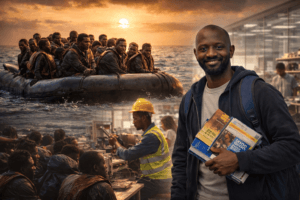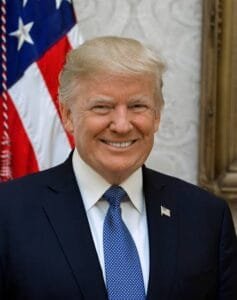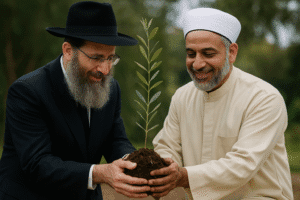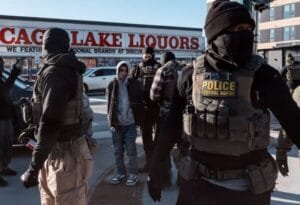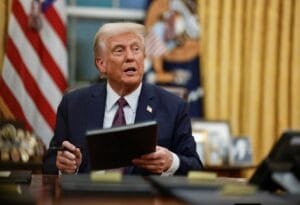DAYLIGHT AFRICA: CONNECTING THE DIASPORA WITH ITS AFRICAN ROOTS

By Mamadou Niang
A unique mobile software program stands out in the crowded world of travel, tourism, and digital leisure applications. The new Daylight Africa app that hit the Apple Store and Google Play last week is a fitting companion for travelers heading to Africa who needn’t read a lengthy treatise on their destination’s history, social life, and modern living to get an enlightening orientation.

The app is a companion initiative for a new movement of the same name to transform the experiential sojourn in Africa of Afro-Americans and neo-Diaspora Africans living in the United States. Daylight Africa invites all Africans to reconnect with the past and ignites the spark for a shared future.
Sheikh Musa Drammeh leads the more than thirty African-American and African immigrant community leaders, artists, and entrepreneurs on a two-week trip to Dakar in Senegal and Banjul in the Gambia. A native of Gambia with many lives as a former banker, Drammeh is a community organizer and serial start-up entrepreneur in newspaper publishing and health services; he started an Islamic K-12 school and a STEM academy.
He is a go-to person in his Bronx section of New York, where more than fifty thousand African immigrants and their families have settled; the most prominent African enclave in America, representing 10% of the Bronx’s immigrant population. Drammeh tirelessly advocates for an emancipated global Africa. “Look,” he tells me, “of the close to $2 trillion of revues in tourism around the world, Africa only gets $42 billion. That’s about 3% of the global total, a pittance. We started this annual pilgrimage to change that.”
The two-legged pilgrimage to the two neighboring countries is a symbolic affirmation of the oneness of Senegambia. The colonial pact severed the two nations which inhabit the same people who speak the same languages and share the same customs. The dilemma with Senegambia traces back to the Berlin Conference. In a fierce competition for access to Southern Atlantic coastal waters, France and Great Britain, elbowing each other, planted their flags on their claimed areas within the same land mass inhabited by the same people. The result produced a fracture between Senegal and the Gambia. They still call their geo-ethnic space Senegambia for its historical integrity. Building bridges across
the Atlantic and repairing the local schism, Daylight Africa members want to deepen the bond between global African peoples.
The journey starts when they land on September 2, 2022, at Blaise Diagne Airport in Dakar. A jammed-pack schedule of official, cultural, and leisurely visits is planned for five days in Dakar and the same in Banjul, Gambia. Queen Mother Moore, the iconic Harlem native, a natural heir of the Black Atlantic Diaspora leadership, accompanied by the filmmaker-artist-activist Terra Renee, whose work was recently prized at a Washington, DC film festival, will be the Afro-descendent standard bearers of this
experience. “I have visited three African countries, but not Senegal and Gambia. I will be screening three of my films and taping my West African sisters’ and brothers’ reactions. I cannot wait to experience the panel discussions,” says Terra.
Daylight Africa is a kickstart campaign in a week of observing the Transatlantic Family Reunification Week (TFRW) for the descendants (victims) of the Transatlantic Slave Trade. As they acknowledge and celebrate the shared experience of struggle, survival, and the delicate and intricate relationship between Africans and African Americans influenced by history and perception.
This past July, in an unprecedented gathering in Bowling Green, New York City’s first public park, the City raised the flag of the nation of Senegal in honor of the country’s delayed independence celebration. It recognized the Pan-African ideal with a focus on building bridges.
The eclectic delegation to Senegambia underscores the historic nature of the experience. The goal is to make the two countries key travel destinations for Afro-Americans and neo-African diasporans. The Senegambia excursion is part of a strategic goal to stay connected globally. Many lessons will come from the experience. For the initiative’s success, there should be an effort to tap into the relatively prosperous diaspora population, who, historically and emotionally, have a good reason to invest and participate in the region’s progress.
In Wolof, the widely spoken language in Senegal and Gambia, Téranga means hospitality. The generosity and warmth of the people are sacrosanct values. “We want to remind our kin in America that there is a place you can escape to. That is Africa. We continue to open our arms and invite all our brothers and sisters home,” says Drammeh.




